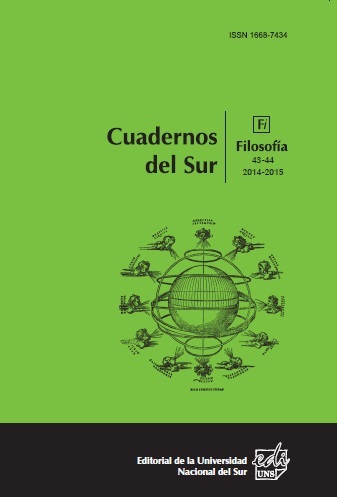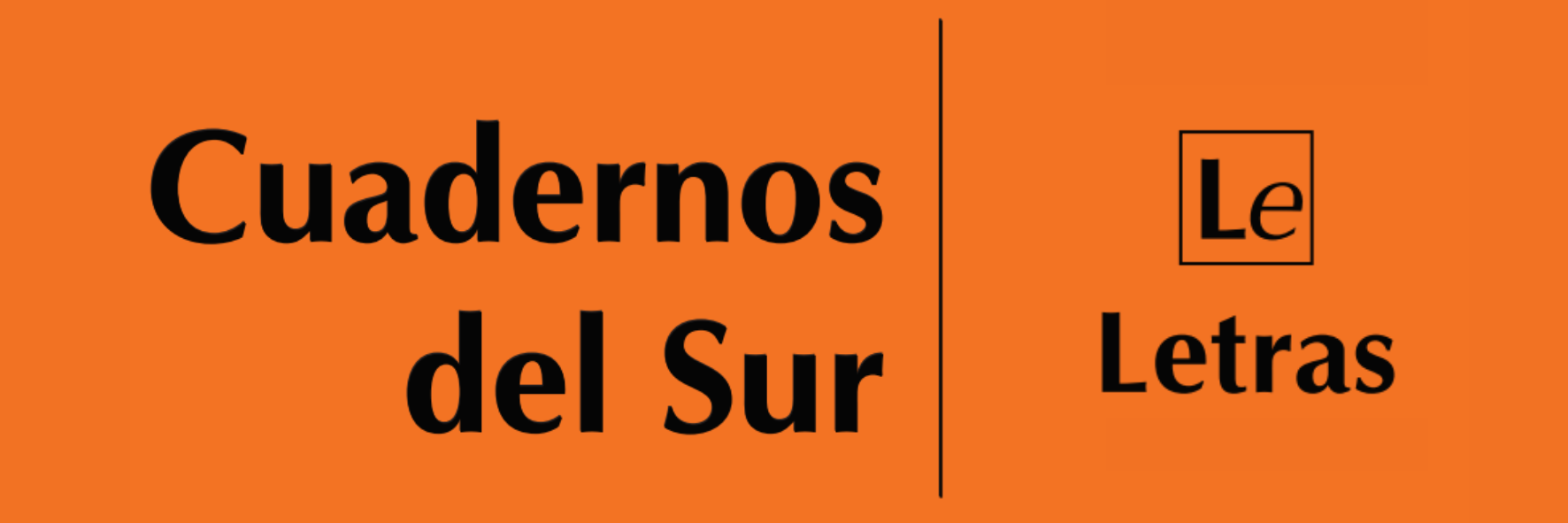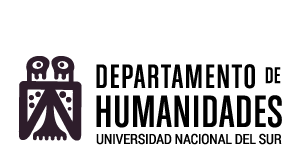Bataille: el acéfalo y lo social sagrado
Keywords:
Bataille, Acéphale, SacredAbstract
This article is about the necessary contact between the profane social order –based on rules– and the sacred forces that arise from it. In this sense, life is regulated under the duties of order. As a result, this inertia reveals the symptom of an ordinary life, without passion. The contact with the sacred forces is the only way to overcome the impasse that the profane order suffers. In 1937, during the social crisis, Bataille founded the secret com-munity Acéphale, under the shadows of Nietzsche. At the same time, it seemed clear to the Collège de Sociologie Sacré and to those of Caillois and Leiris that the society had lost the secret of its cohesion, that the sacred substrate constitutes its own energetic nucleus and that without that contact there is not a vital reality. Because the human being needs to relieve his anguish of desire, violence and death in the unlimited experience of the sacred there where he can recover the tragic conscience of his limit and integral monstrosity.
Downloads
References
Artaud, Antonin (1978), El teatro y su doble, Barcelona, Edhasa.
----- (1997), Heliogábalo: o el anarquista coronado, Madrid, Fundamentos.
Bataille, George (2008), La conjuración sagrada, Buenos Aires, Adriana Hidalgo editora.
----- (1979), El ojo pineal, Valencia, Pre-textos, [Trad.: Arranz, Manuel]. Bataille, George; Caillois, Roger; Klossowski, Pierre; Masson André; Monnerot,
Jules; Rollin, Jean y Wahl, Jean (2005), Acéphale, Buenos Aires, Caja Negra.
Bergua, José (2004), “Lo social sagrado”, Nómadas, vol.9, [disponible en http://www.pendientedemigracion.ucm.es - consultado el 24 de agosto de 2014].
Blanchot, Maurice (1992), La comunidad inconfesable, México, Vuelta.
Breton, André (1965), Los manifi estos del surrealismo, Buenos Aires, Ediciones Nueva Visión.
Caillois, Roger (2004), El hombre y lo sagrado, México, F. C. E.
Camus, Albert (1959), Obras completas, México, Aguilar.
Durkheim, Émile (2012), Las formas elementales de la vida religiosa, México, F. C. E.
Duvignaud, Jean (1990), Herejía y subversión: ensayos sobre la anomia, Barcelona, Icaria.
Foucault, Michel (1996), “Prefacio a la trasgresión”, en De lenguaje y literatura, Buenos Aires, Paidós, pp.123-143.
Heidegger, Martin (1996), Caminos de bosque, Madrid, Alianza.
Heráclito/Parménides (1983), Fragmentos, Barcelona, Orbis.
Hollier, Dennis (Ed.) (1982), El colegio de sociología (1937-1939), Madrid, Taurus.
Hubert, Henri y Mauss, Marcel (1946), Magia y sacrificio en la historia de las religiones, Buenos Aires, Lautaro.
Kerényi, Karl (1998), Dionisios: raíz de la vida indestructible, Barcelona, Herder.
Kierkegaard, Soren (1972), El concepto de la angustia, Madrid, Espasa-Calpe.
Klossowski, Pierre (1970), Sade, mi prójimo, Buenos Aires, Sudamericana.
----- (2012), La moneda viva, Valencia, Pre-textos.
Leiris, Michel (1998), Espejo de la tauromaquia, México, Aldus.
Maffesoli, Michel (2004), El tiempo de las tribus, México, Siglo XXI editores.
Nietzsche, Friedrich (1971), Así habló Zaratustra, Madrid, Alianza.
----- (1975), El anticristo, Madrid, Alianza.
----- (1981), El nacimiento de la tragedia, Madrid, Alianza.
----- (2008), La voluntad de poder, Madrid, EDAF.
Downloads
How to Cite
Issue
Section
License
Copyright (c) 2014 Andrés Mora

This work is licensed under a Creative Commons Attribution-NonCommercial 4.0 International License.
Aquellos autores/as que tengan publicaciones con esta revista, aceptan los términos siguientes:- Los autores/as conservarán sus derechos de autor y garantizarán a la revista el derecho de primera publicación de su obra, el cuál estará simultáneamente sujeto a la licencia Atribución-No Comercial 4.0 Internacional CC BY-NC 4.0.
- Los autores/as podrán adoptar otros acuerdos de licencia no exclusiva de distribución de la versión de la obra publicada (p. ej.: depositarla en un archivo telemático institucional o publicarla en un volumen monográfico) siempre que se indique la publicación inicial en esta revista.
- Se permite y recomienda a los autores/as difundir su obra a través de Internet (p. ej.: en archivos telemáticos institucionales o en su página web) una vez publicado su trabajo, lo cual puede producir intercambios interesantes y aumentar las citas de la obra publicada. (Véase El efecto del acceso abierto).








